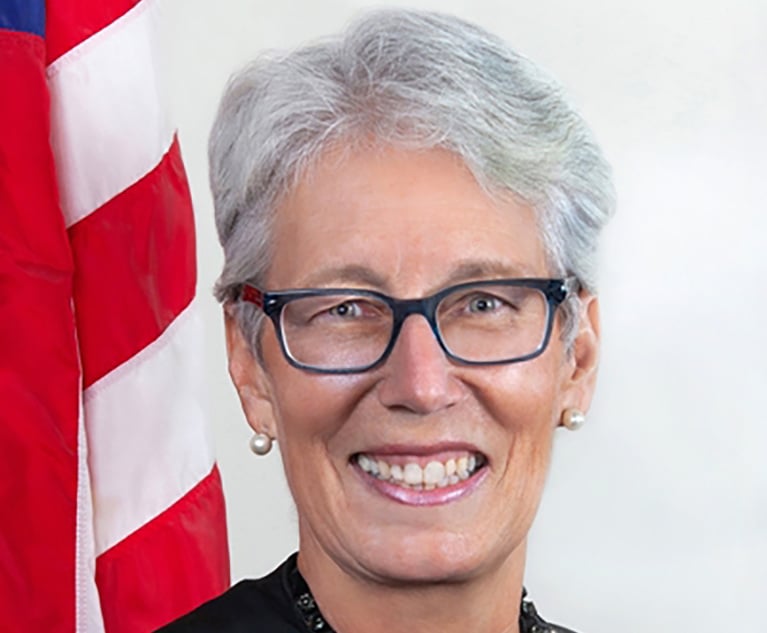 Photo: everything possible/Shutterstock.com
Photo: everything possible/Shutterstock.com Chancery Court Filings Declined Last Year Amid Historic Expansion, Report Shows
The Court of Chancery's overall caseload declined for the third straight year in 2018, as the court underwent a historic expansion that added two new judges to the bench, according to a report published Wednesday by the Delaware Judiciary.
February 13, 2019 at 02:30 PM
4 minute read
The original version of this story was published on Delaware Law Weekly
The Court of Chancery's overall caseload declined for the third straight year in 2018, as the court underwent a historic expansion that added two new judges to the bench, according to a report published Wednesday by the Delaware Judiciary.
The annual report, prepared by the Administrative Office of the Courts, showed that filings in the nation's pre-eminent business court dipped nearly 4.5 percent to 959 last year, compared to 1,004 in 2017. Dispositions fell 19.6 percent to 973 in 2018, from 1,211 the year before.
The decline came as the Chancery Court bolstered its ranks from five to seven judges in the first expansion since 1989.
The move came on the heels of a 2017 study of the Chancery Court's workload trends, which found that the number of Delaware-registered business entities had grown 500 percent to more than 1.2 million over the past 25 years. According to that study, the Chancery Court's case mix reflected a significant uptick in complex commercial litigation, on top of its traditional docket of corporate governance cases. Corporate and commercial cases, which are individually assigned to judges, consume the vast majority of the time and attention of the court's judicial officers, officials said.
According to the 2018 report, Chancery Court filings and dispositions last year were at their lowest levels since 2010, when filings started to rise after the 2008 financial crisis.
Meanwhile, the state Supreme Court, which also has massive influence in developing corporate law, received 646 new appeals in 2018, up from the 533 filings it saw in 2017. Total dispositions, however, fell from 604 in 2017 to 583 last year, a slight decrease of 3.4 percent. Of those cases, 55 were appeals from Chancery Court rulings.
According to the report, the high court met its benchmark for deciding 99 percent of all cases within 290 days of the filing of a notice of appeal, and disposed of all its cases within a one-year timeframe. Appeals were decided on average of 30 days from the date of submission to the date of final decision.
The 2018 calendar year marked the end of a dramatic reshuffling of the Chancery and Supreme courts, as Gov. John Carney nominated Morgan T. Zurn and Kathaleen S. McCormick to fill the two newly created seats on the Chancery Court's bench. Zurn and McCormick's confirmation last year doubled, from two to four, the number of women to serve on the court during its 226-year history.
In the report, Supreme Court Chief Justice Leo E. Strine Jr. touted efforts last year to improve the work-life balance of Delaware attorneys by encouraging courts to re-evaluate best practices and policies related to court processes, filing deadlines and scheduling.
But the report also highlighted the Judiciary's top priorities for the coming year, including an ambitious “community court” initiative, which aims to provide a framework for the state's problem-solving courts and make the justice system more accessible to Delaware residents.
In Wilmington, the Judiciary plans to open a community resource center this year in the Leonard L. Williams Justice Center's law library, and the AOC has already begun work on transforming courthouse law libraries into self-help centers for litigants.
The community court, the report said, would offer evening hours once a week to address local concerns and provide sessions preparing defendants for job-readiness training. According to the report, officials are hoping to learn from the programs and eventually extend the concept to downstate courthouses in Kent and Sussex counties.
“In 2019, the Delaware courts will work to transform the largest courthouse in our state into a genuine 'Community Court,' one where there is only a right door, and never a wrong door, for criminal defendants and civil litigants in need of help to become more productive and law-abiding citizens,” it said.
The report's release coincided with Strine's annual budget address in Wilmington, where he was expected Wednesday to detail for lawmakers the Judiciary's funding request for the upcoming fiscal year.
This content has been archived. It is available through our partners, LexisNexis® and Bloomberg Law.
To view this content, please continue to their sites.
Not a Lexis Subscriber?
Subscribe Now
Not a Bloomberg Law Subscriber?
Subscribe Now
NOT FOR REPRINT
© 2024 ALM Global, LLC, All Rights Reserved. Request academic re-use from www.copyright.com. All other uses, submit a request to [email protected]. For more information visit Asset & Logo Licensing.
You Might Like
View All
Attorneys, Professors Share Support for Chancellor Following Musk's Online Attacks
4 minute read

Jurden Announces 2025 Retirement, Capping 24 Years on Superior Court
3 minute read
Trending Stories
- 1Pardoning Jan. 6 Defendants May Send Bad Message About Insurrection, Rule of Law
- 2Looming Clash Over Abortion Pills Shows Overturning 'Roe v. Wade' Settled Nothing
- 33rd Circuit Strikes Down NLRB’s Monetary Remedies for Fired Starbucks Workers
- 4Latest Class of Court Officers Sworn into Service in New York
- 5Kirkland's Daniel Lavon-Krein: Staying Ahead of Private Equity Consolidation
Who Got The Work
Michael G. Bongiorno, Andrew Scott Dulberg and Elizabeth E. Driscoll from Wilmer Cutler Pickering Hale and Dorr have stepped in to represent Symbotic Inc., an A.I.-enabled technology platform that focuses on increasing supply chain efficiency, and other defendants in a pending shareholder derivative lawsuit. The case, filed Oct. 2 in Massachusetts District Court by the Brown Law Firm on behalf of Stephen Austen, accuses certain officers and directors of misleading investors in regard to Symbotic's potential for margin growth by failing to disclose that the company was not equipped to timely deploy its systems or manage expenses through project delays. The case, assigned to U.S. District Judge Nathaniel M. Gorton, is 1:24-cv-12522, Austen v. Cohen et al.
Who Got The Work
Edmund Polubinski and Marie Killmond of Davis Polk & Wardwell have entered appearances for data platform software development company MongoDB and other defendants in a pending shareholder derivative lawsuit. The action, filed Oct. 7 in New York Southern District Court by the Brown Law Firm, accuses the company's directors and/or officers of falsely expressing confidence in the company’s restructuring of its sales incentive plan and downplaying the severity of decreases in its upfront commitments. The case is 1:24-cv-07594, Roy v. Ittycheria et al.
Who Got The Work
Amy O. Bruchs and Kurt F. Ellison of Michael Best & Friedrich have entered appearances for Epic Systems Corp. in a pending employment discrimination lawsuit. The suit was filed Sept. 7 in Wisconsin Western District Court by Levine Eisberner LLC and Siri & Glimstad on behalf of a project manager who claims that he was wrongfully terminated after applying for a religious exemption to the defendant's COVID-19 vaccine mandate. The case, assigned to U.S. Magistrate Judge Anita Marie Boor, is 3:24-cv-00630, Secker, Nathan v. Epic Systems Corporation.
Who Got The Work
David X. Sullivan, Thomas J. Finn and Gregory A. Hall from McCarter & English have entered appearances for Sunrun Installation Services in a pending civil rights lawsuit. The complaint was filed Sept. 4 in Connecticut District Court by attorney Robert M. Berke on behalf of former employee George Edward Steins, who was arrested and charged with employing an unregistered home improvement salesperson. The complaint alleges that had Sunrun informed the Connecticut Department of Consumer Protection that the plaintiff's employment had ended in 2017 and that he no longer held Sunrun's home improvement contractor license, he would not have been hit with charges, which were dismissed in May 2024. The case, assigned to U.S. District Judge Jeffrey A. Meyer, is 3:24-cv-01423, Steins v. Sunrun, Inc. et al.
Who Got The Work
Greenberg Traurig shareholder Joshua L. Raskin has entered an appearance for boohoo.com UK Ltd. in a pending patent infringement lawsuit. The suit, filed Sept. 3 in Texas Eastern District Court by Rozier Hardt McDonough on behalf of Alto Dynamics, asserts five patents related to an online shopping platform. The case, assigned to U.S. District Judge Rodney Gilstrap, is 2:24-cv-00719, Alto Dynamics, LLC v. boohoo.com UK Limited.
Featured Firms
Law Offices of Gary Martin Hays & Associates, P.C.
(470) 294-1674
Law Offices of Mark E. Salomone
(857) 444-6468
Smith & Hassler
(713) 739-1250






